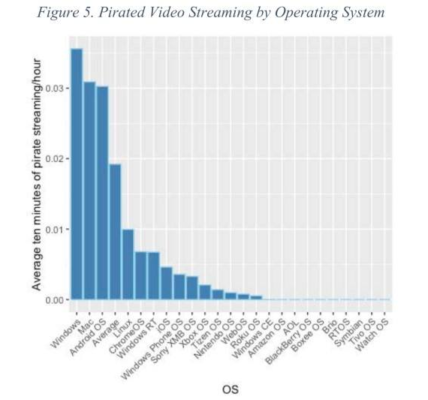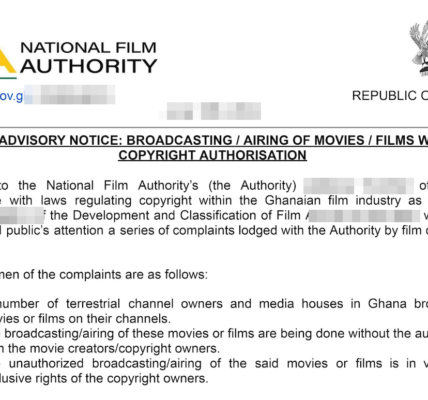Piracy increases “Internet buzz,” which in turn boosts legitimate TV-show viewership.
The evolving landscape of online piracy presents complex challenges for content creators, distributors, and policymakers alike. While the impacts of piracy on legal consumption can vary significantly, recent research suggests that TV show piracy may have a promotional aspect that can mitigate some negative effects on legitimate viewership.
One notable finding from this research is the role of online “buzz” generated by piracy in platforms like YouTube, Google, and Twitter. Despite the illegal nature of these activities, the dissemination of pirated content through social media channels can contribute to increased awareness and interest in TV shows, effectively serving as a form of promotion.
This promotional aspect of piracy may lead to several outcomes:
- Increased Awareness: Piracy generates discussions and excitement around TV shows, leading to increased awareness among audiences who may not have been exposed to the content otherwise.
- Word-of-Mouth Marketing: Social media sharing of pirated content can serve as a form of word-of-mouth marketing, with viewers recommending shows to their networks and generating further interest.
- Cultural Influence: Pirated content shared online may contribute to the cultural significance of TV shows, leading to broader discussions and engagement with the content.
- Viewer Engagement: While piracy may initially attract viewers to pirated copies, some may subsequently seek out legal means of accessing the content, such as subscribing to streaming services or purchasing DVDs or digital downloads.
However, it’s important to note that these potential promotional effects of piracy do not justify or negate the illegal distribution of copyrighted content. Piracy still poses significant challenges to content creators, distributors, and copyright holders, including lost revenue, reduced incentives for creative production, and legal risks.
Furthermore, the impact of piracy on legitimate viewership remains a subject of ongoing debate and research. While some studies suggest that piracy may have minimal or even positive effects on legal consumption, others highlight its detrimental impact on revenue and audience engagement.
Ultimately, addressing online piracy requires a multifaceted approach that combines efforts to enhance legal content access, educate consumers about the importance of copyright, and enforce anti-piracy measures. By understanding the complex dynamics of piracy and its effects on legal consumption, stakeholders can develop more effective strategies to combat this persistent challenge in the digital age.
The findings of this study shed light on the complex relationship between online piracy, online buzz, and legitimate viewership of TV shows. While it’s commonly assumed that piracy negatively impacts legal consumption, the researchers found that the situation is more nuanced.
At a basic level, the study confirmed that increased piracy correlates with decreased legitimate viewership, indicating a potential loss of revenue for content creators and distributors. However, the researchers also discovered that piracy generates online buzz, particularly on platforms like Google, Twitter, and YouTube.
This online buzz, fueled by discussions, sharing, and promotion of pirated content, actually contributes to increased viewership of the TV shows. In other words, while piracy may divert some viewers away from legitimate channels, it also generates additional attention and interest in the content, ultimately attracting more viewers through legal means.
Through a mediation analysis, the researchers determined that this indirect positive effect of piracy-mediated internet buzz helps offset the negative impact on legitimate viewership. In essence, the increased online attention generated by piracy helps mitigate the losses incurred through piracy itself.
These findings challenge the conventional wisdom that piracy invariably harms legal consumption and revenue. Instead, they suggest that the relationship between piracy and legitimate viewership is more complex, influenced by factors such as online buzz and audience engagement.
Moving forward, this research underscores the importance of considering the broader context and dynamics of online piracy when assessing its impacts on content consumption. By understanding how piracy interacts with online buzz and legitimate viewership, stakeholders can develop more nuanced strategies to address piracy and maximize the reach and revenue of their content.

The study’s further analysis unveils some interesting nuances in the relationship between piracy, online buzz, and legitimate viewership of TV shows. One significant finding is that the mediating effect of online buzz is most pronounced for less popular shows, which benefit more from the additional attention generated by piracy.
Moreover, the study reveals that the impact of online buzz on legitimate viewership tends to be stronger during the second half of a season. While piracy may initially have a negative effect on viewership, particularly for early episodes, the online buzz generated by piracy becomes more influential as the season progresses. In some cases, this leads to a net positive effect on legitimate viewership, where the increased online attention compensates for any losses incurred through piracy.
These findings challenge traditional assumptions about the detrimental effects of piracy on legal consumption and revenue. Instead, they suggest that piracy can serve as a double-edged sword, simultaneously diverting viewers away from legitimate channels while also generating valuable online buzz that attracts more viewers. This phenomenon is particularly pronounced for less popular shows and during the latter half of a season.
Overall, the research highlights the complex interplay between piracy, online buzz, and legitimate viewership in shaping the consumption patterns of TV shows. It underscores the need for a nuanced understanding of these dynamics when developing strategies to address piracy and maximize the reach and revenue of content.






